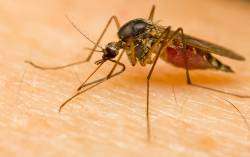Malaria rate halved in 15 years

Dr Finn Lindgren from the Department of Mathematical Sciences has assisted with a new study that shows a 50% decline in the rate of African malaria over 15 years.
The study has also been published in the prestigious science journal Nature.
Led by the Malaria Atlas Project (MAP) at the University of Oxford, the study used computational techniques to analyse data from nearly 30,000 African communities. This included data on the levels of malaria infection and use of control measures such as bed nets.
There's still work to do
Finn said: "The results of the study show that the malaria risk has been dramatically reduced across Africa, and that malaria control interventions have been highly effective. Increased understanding is needed to further reduce the risk, in particular for the regions where there has been less progress than in the more successful regions."
Malaria is caused by parasites, transmitted to humans by mosquitoes and is a public health problem in more than 100 countries, inhabited by half of the world's population.
The study is the first to quantify the rapidly changing malaria risk in Africa. It is used in a new report released by the World Health Organization and UNICEF, highlighting how contributions towards fighting the disease have helped meet the Millennium Development Goals (MDGs).
More information: "The effect of malaria control on Plasmodium falciparum in Africa between 2000 and 2015." Nature (2015) DOI: 10.1038/nature15535

















